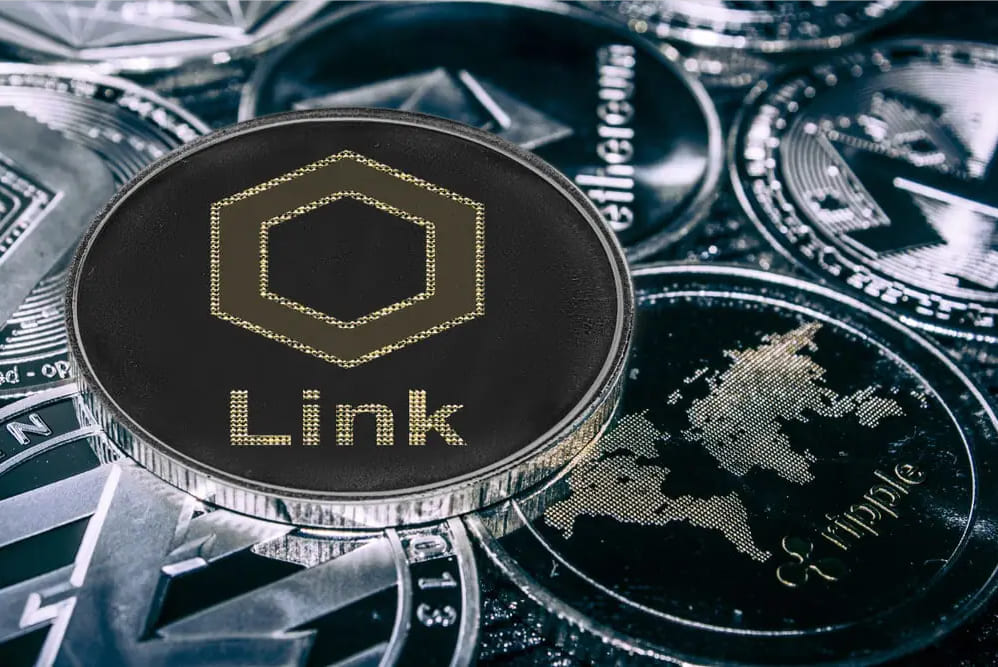 Chainlink(LINK)
Chainlink(LINK)
Chainlink is a Decentralized Oracle Network
2024-07-22 13:52:40
Founded in 2017, Chainlink is a blockchain abstraction layer that enables universally connected smart contracts. Through a decentralized oracle network, Chainlink allows blockchains to securely interact with external data feeds, events and payment methods, providing the critical off-chain information needed by complex smart contracts to become the dominant form of digital agreement.
The Chainlink Network is driven by a large open-source community of data providers, node operators, smart contract developers, researchers, security auditors and more. The company focuses on ensuring that decentralized participation is guaranteed for all node operators and users looking to contribute to the network.
Chainlink was created to “securely connect the smart contracts with the off-chain data and services'' as it claimed on the official website. Chainlink, cofounded by CEO Sergey Nazarov and CTO Steve Ellis, was conceptualized in 2014 and launched three years later in 2017. Chainlink seeks to mend the loopholes that the decentralized smart contracts are unable to solve. Most of the time the data needed for the contract to make the critical decisions or to measure the criteria for certain action is not accessible or on-chain. Therefore, real-world data needs to be aggregated and of course validated to process the smart contracts. LINK, the token that powers the Chainlink network, is now a top 15 cryptocurrency with a market cap of more than $10.7B.

What is Chainlink?
Chainlink is designed to provide a trusted decentralized oracle infrastructure and framework for smart contracts on multiple blockchains. It seeks to solve the problem of the centralized oracles used by smart contracts that the data can be false or manipulated. Chainlink takes the capacity of smart contracts to another level that they can obtain the off-chain information. Chainlink gathers information from the oracle network, discards outliers and the consensus is passed to the smart contract. These steps ensure the validity of the data provided.
Interoperable Chainlink has been designed to work across any blockchain that has smart contract functionality. That also means whe the other ecosystems utilizing smart contracts such as Ethereum or Cardano are getting popular, the demand for the Chainlink services are increasing as well.
How does the Oracle Network work?
To allow the off-chain information to communicate with on-chain smart contracts, Chainlink has three steps to follow: oracle selection, data reporting and result aggregation.
First, a Chainlink user drafts a Service Level Agreement, citing a specific set of data requirements and sends it to an Order-Matching Contract. The Chainlink software will then, according to the agreement, find the suitable oracles to provide the data. Data reporting is a process that the oracles connect to the outside world, obtaining the real-world information which will be sent back to the contracts utilizing the service. The last step is to tally the data collected by the oracles and return to an Aggregation Contract which assesses the validity of each data and sends the data to the smart contract user. There is also an internal reputation system that Chainlink can determine accurately which sources are credible.
Native Token-LINK
LINK, issued on the Ethereum blockchain, is the native token of Chainlink and it has two particular uses. Number one, LINK is for the requesters to pay for services on the network and the other use is for deposits placed by node operators as required by the contract creators. It is similar to a Proof of Stake consensus mechanism, the node operators are incentivized with LINK rewards to provide honest and efficient service.
